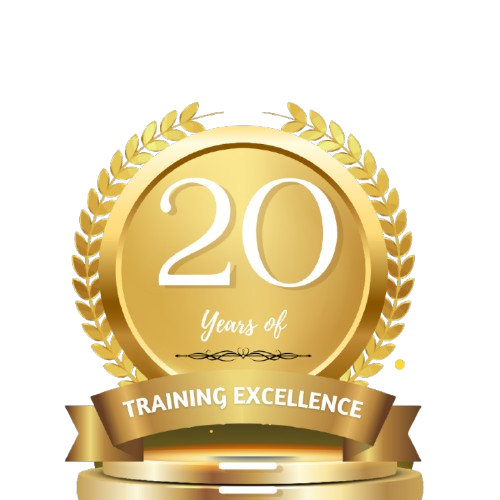The Role of Human Resources and Organizational Development in Business Growth
In today’s competitive business landscape, Human Resources (HR) and Organizational Development (OD) are critical components that drive a company’s success. Both functions play a pivotal role in ensuring that an organization has the right talent, culture, and structure to achieve its strategic goals. In this blog post, we will explore how HR and Organizational Development contribute to business growth and why training in these areas is essential for the long-term success of any organization.
What is Human Resources and Organizational Development?
Human Resources (HR) refers to the department responsible for managing an organization’s employees, including hiring, training, performance management, and employee relations. HR ensures that the right people are in the right roles, that they are motivated and productive, and that they are aligned with the company’s mission and values.
Organizational Development (OD), on the other hand, is a more strategic process that focuses on improving the overall efficiency and effectiveness of an organization. OD involves analyzing and redesigning structures, processes, and systems to ensure that an organization can adapt to change, innovate, and grow. It often includes leadership development, team building, and change management initiatives.
Together, HR and OD play a vital role in creating a high-performance culture and ensuring the organization is positioned for sustainable growth.

The Importance of Human Resources in Business Growth
- Attracting and Retaining Talent
- One of the primary functions of HR is to recruit, hire, and retain the best talent. In today’s competitive job market, attracting top talent is more challenging than ever, and companies need a robust HR strategy to stand out.
- HR professionals are responsible for creating compelling job descriptions, engaging recruitment campaigns, and fostering a positive candidate experience. Beyond hiring, HR is also tasked with creating a supportive environment that keeps employees motivated and reduces turnover.
- Employee Training and Development
- Continuous learning is essential for employee growth and organizational success. Through employee training and development programs, HR helps employees acquire new skills, stay updated with industry trends, and prepare for future roles.
- This not only increases employee satisfaction but also enhances their productivity and contribution to the company’s goals. A well-trained workforce is more adaptable to change and more likely to drive innovation within the organization.
- Performance Management
- Effective performance management is a critical HR function that ensures employees are meeting expectations and contributing to business objectives. HR designs performance evaluation processes that provide clear goals, regular feedback, and opportunities for development.
- Through regular performance reviews and feedback, HR helps employees align their work with the company’s goals, identify areas for improvement, and set actionable plans for growth.
- Employee Engagement and Well-Being
- A motivated workforce is essential for business success. HR plays a significant role in fostering employee engagement by creating programs that enhance job satisfaction, improve work-life balance, and promote well-being.
- Engaged employees are more productive, loyal, and committed to the company’s success. HR strategies such as recognition programs, wellness initiatives, and flexible work arrangements help improve morale and reduce burnout, ultimately leading to better business outcomes.
The Importance of Organizational Development in Business Growth

- Adapting to Change
- In an era of rapid technological advancement and shifting market conditions, businesses must be agile and adaptable. Organizational Development helps companies navigate these changes by creating a culture of continuous improvement.
- OD professionals analyze existing structures, identify areas for improvement, and implement strategies that enable the organization to adapt and thrive in the face of change. This could involve restructuring teams, streamlining processes, or introducing new technology.
- Improving Efficiency and Productivity
- One of the key goals of OD is to improve organizational efficiency. This involves analyzing workflows, identifying bottlenecks, and optimizing processes to ensure that resources are used effectively.
- By improving efficiency, OD helps companies reduce costs, increase productivity, and create a more streamlined operation that can better meet customer demands.
- Fostering a Strong Organizational Culture
- A company’s culture plays a significant role in its success. OD focuses on building a strong, positive organizational culture that aligns with the company’s values and goals.
- Through initiatives such as team-building exercises, leadership development programs, and employee engagement activities, OD helps create a culture that fosters collaboration, innovation, and a sense of shared purpose.
- Leadership Development
- Effective leadership is critical to an organization’s success. OD professionals focus on developing leadership skills within the company to ensure that leaders can guide teams effectively and inspire high performance.
- Leadership development programs help managers and executives hone their skills in communication, decision-making, and conflict resolution, all of which are crucial for driving business growth.
Why HR and OD Training is Essential

In an increasingly competitive and fast-paced business world, investing in HR and OD training is essential for long-term success. Here are some reasons why training in these areas is critical:
- Keeping Up with Industry Trends
- The HR and OD landscape is constantly evolving, with new trends emerging in areas such as remote work, employee well-being, and diversity and inclusion. Regular training helps professionals stay updated on the latest best practices and ensure that their strategies remain relevant and effective.
- Enhancing Employee Performance
- HR and OD professionals play a crucial role in developing and implementing strategies that enhance employee performance. By investing in training, these professionals can learn new tools and techniques to improve employee engagement, motivation, and productivity.
- Building a Resilient Organization
- Organizational resilience is more important than ever in today’s business environment. Training in OD provides professionals with the skills they need to develop systems and processes that can withstand challenges and adapt to change.
- Creating a Competitive Advantage
- Companies with strong HR and OD strategies have a competitive advantage in the marketplace. By investing in training, businesses can ensure that they are attracting and retaining top talent, fostering a positive culture, and continuously improving their operations.
HR and OD Training Opportunities
At ASPM’s HR and Organizational Development workshops, professionals can gain the skills and knowledge they need to succeed in these critical areas. Our training programs cover topics such as:
- Talent acquisition and retention
- Employee training and development
- Leadership and team building
- Change management
- Organizational culture and engagement
By attending these workshops, HR and OD professionals will learn how to create strategies that not only improve employee performance but also drive organizational growth.
Conclusion: Building a Stronger, More Agile Organization
Human Resources and Organizational Development are the backbone of any successful organization. By investing in HR and OD training, companies can create a motivated, engaged, and high-performing workforce that drives innovation and business growth. Whether you are looking to improve employee performance, foster a positive company culture, or adapt to change, training in these areas is key to achieving your goals.



